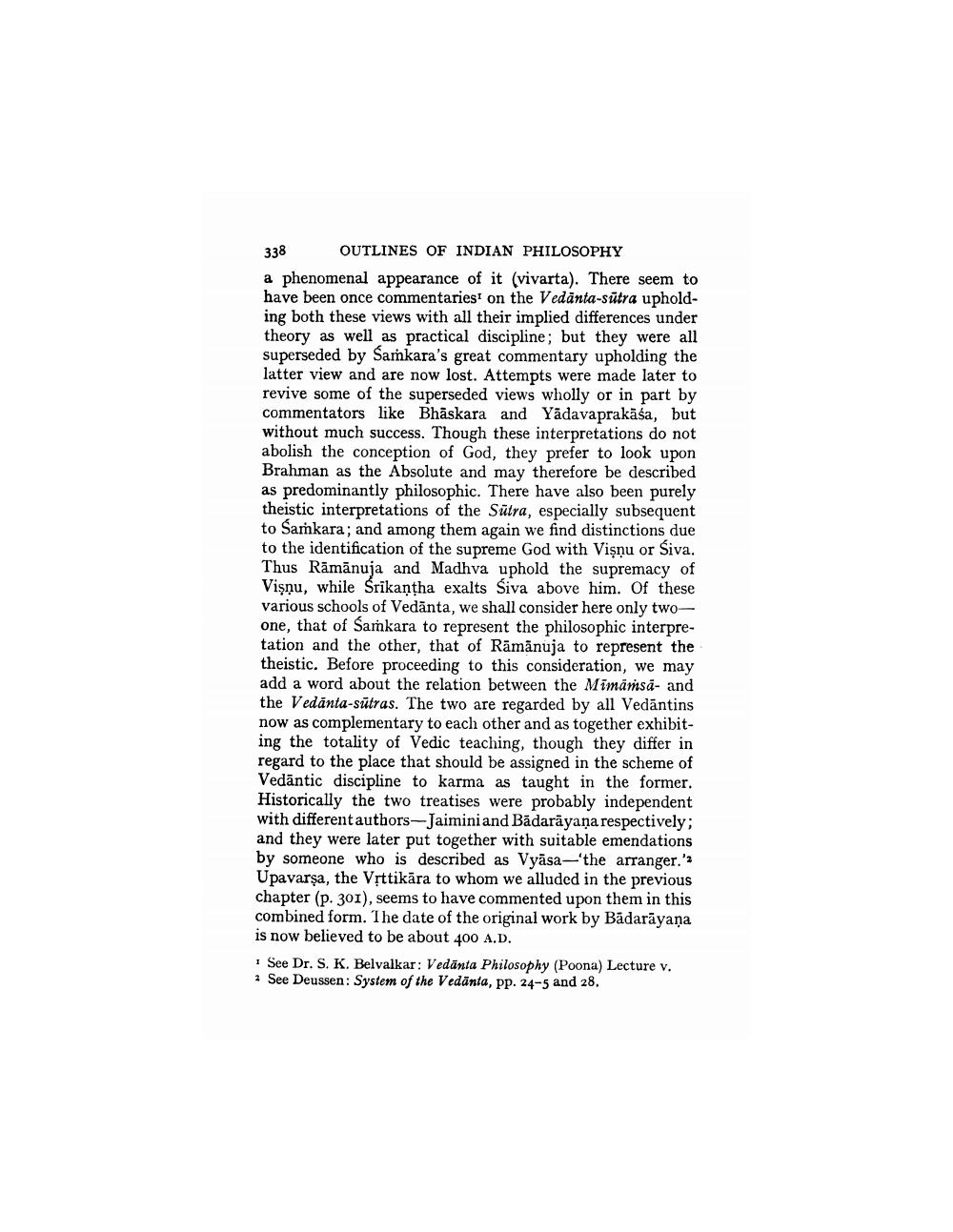________________
338 OUTLINES OF INDIAN PHILOSOPHY a phenomenal appearance of it (vivarta). There seem to have been once commentariest on the Vedänta-sūtra upholding both these views with all their implied differences under theory as well as practical discipline; but they were all superseded by Sarkara's great commentary upholding the latter view and are now lost. Attempts were made later to revive some of the superseded views wholly or in part by commentators like Bhāskara and Yadavaprakāśa, but without much success. Though these interpretations do not abolish the conception of God, they prefer to look upon Brahman as the Absolute and may therefore be described as predominantly philosophic. There have also been purely theistic interpretations of the Sutra, especially subsequent to Samkara; and among them again we find distinctions due to the identification of the supreme God with Vişnu or Siva, Thus Rāmānuja and Madhva uphold the supremacy of Vişnu, while Srikantha exalts Siva above him. Of these various schools of Vedānta, we shall consider here only twoone, that of Sarkara to represent the philosophic interpretation and the other, that of Rāmānuja to represent the theistic. Before proceeding to this consideration, we may add a word about the relation between the Mimämsä- and the Vedanta-sūtras. The two are regarded by all Vedāntins now as complementary to each other and as together exhibiting the totality of Vedic teaching, though they differ in regard to the place that should be assigned in the scheme of Vedāntic discipline to karma as taught in the former. Historically the two treatises were probably independent with different authors-Jaiminiand Badarāyaṇa respectively; and they were later put together with suitable emendations by someone who is described as Vyāsa-'the arranger.' Upavarşa, the Vịttikāra to whom we alluded in the previous chapter (p. 301), seems to have commented upon them in this combined form. The date of the original work by Bädarāyana is now believed to be about 400 A.D. See Dr. S. K. Belvalkar: Vedānta Philosophy (Poona) Lecture v. See Deussen: System of the Vedanta, pp. 24-5 and 28.




